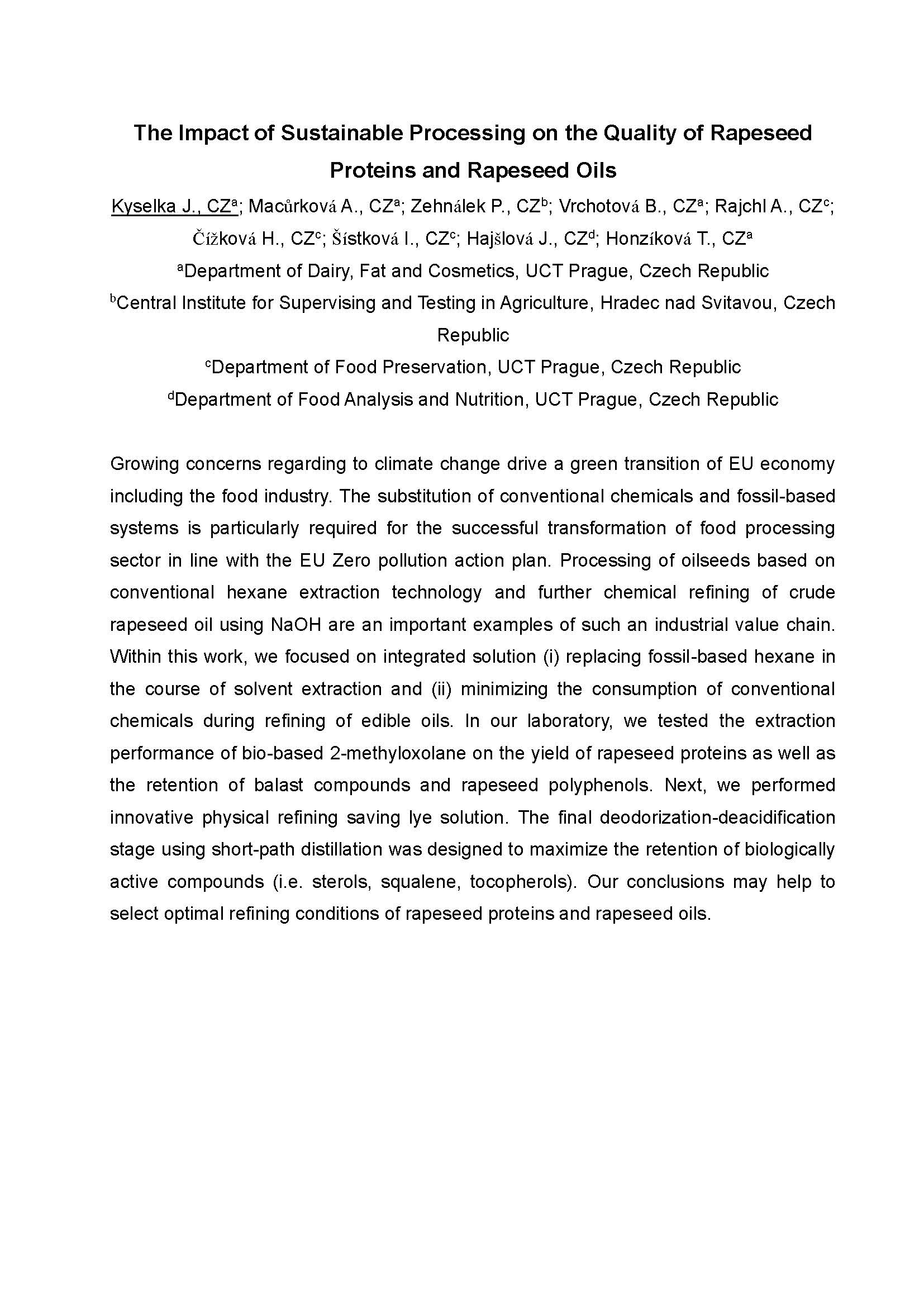Growing concerns regarding to climate change drive a green transition of EU economy including the food industry. The substitution of conventional chemicals and fossil-based systems is particularly required for the successful transformation of food processing sector in line with the EU Zero pollution action plan. Processing of oilseeds based on conventional hexane extraction technology and further chemical refining of crude rapeseed oil using NaOH are an important examples of such an industrial value chain. Within this work, we focused on integrated solution (i) replacing fossil-based hexane in the course of solvent extraction and (ii) minimizing the consumption of conventional chemicals during refining of edible oils.
In our laboratory, we tested the extraction performance of bio-based 2-methyloxolane on the yield of rapeseed proteins as well as the retention of balast compounds and rapeseed polyphenols. Next, we performed innovative physical refining saving lye solution. The final deodorization-deacidification stage using short-path distillation was designed to maximize the retention of biologically active compounds (i.e. sterols, squalene, tocopherols). Our conclusions may help to select optimal refining conditions of rapeseed proteins and rapeseed oils.
